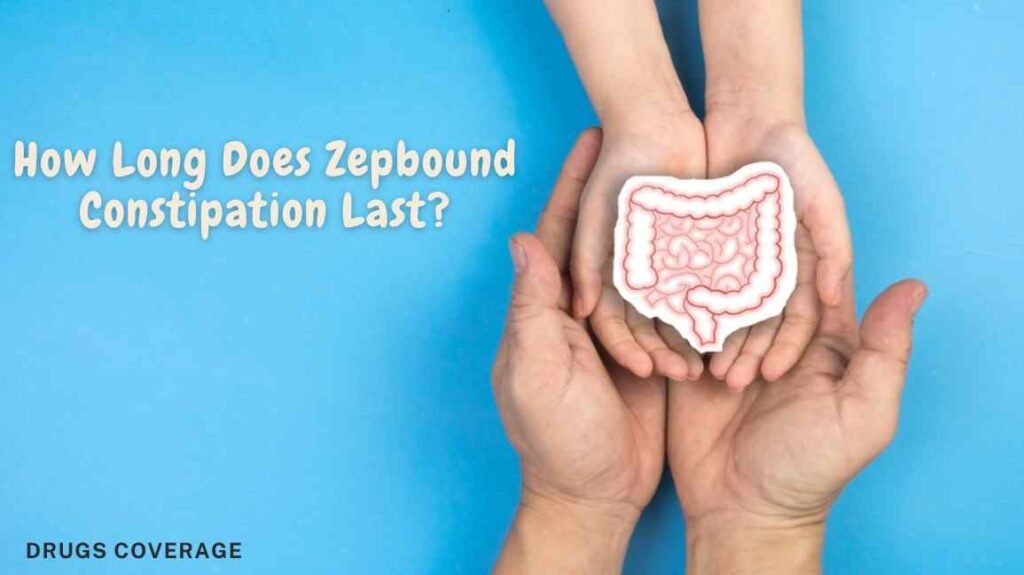
Constipation can be uncomfortable and sometimes painful. It affects many people who use weight management medications like Zepbound.
Knowing why this side effect happens can help you take proactive steps to avoid it. With the right strategies and some lifestyle changes, you can manage and even prevent constipation. This makes your weight loss journey much smoother and more comfortable.
This article aims to explore the reasons behind Zepbound-induced constipation and offers evidence-based solutions to ease this common concern.
What is Zepbound, and How Does it Work for Weight Management?
Zepbound is a newly approved prescription medication designed to help adults over 18 with weight management. Approved by the Food and Drug Administration (FDA) in November, Zepbound stands as a new competitor to Novo Nordisk’s well-known weight loss drug, Wegovy.
This medication is administered via injection once a week and contains tirzepatide, a compound that mimics the effects of two natural gut hormones: GLP-1 and GIP.
These hormones play important roles in:
- Influencing feelings of fullness: By simulating these hormones, Zepbound helps you feel fuller for longer periods.
- Enhancing insulin sensitivity: Improving how your body responds to insulin.
- Slowing gastric emptying: Delaying how quickly food leaves the stomach.
By leveraging these mechanisms, Zepbound aims to reduce calorie intake and facilitate weight loss in a natural, manageable way.
Does Zepbound Give You Constipation?
The short answer is yes. In the first 36 weeks, people using Zepbound experienced constipation as a common side effect, affecting an average of about 20.7% of participants in the clinical trial.
This side effect occurs because the medication slows gastric emptying, meaning food stays in the stomach longer. While this helps you feel full and decreases calorie intake, it can also reduce the frequency of bowel movements.
Related: 5 Common Reasons Zepbound Coupons Don’t Work
How Zepbound May Cause Constipation
We don’t know exactly why tirzepatide causes stomach-related side effects, but it’s probably because of how it affects the gut.
When the body produces GLP-1 and GIP hormones naturally, they stimulate various processes in the gut, like moving food through the digestive tract. By increasing these hormones’ levels, Zepbound can cause changes in how your stomach functions.
Zepbound’s mechanism of action involves slowing gastric emptying, which means that food stays in your stomach and intestines for a longer time.
While this can help you feel full and satisfied, it also means that the digestive process takes longer, potentially leading to constipation. Here are some specific ways in which Zepbound may contribute to this issue:
- Delayed Gastric Emptying: The slower movement of food can result in less frequent bowel movements.
- Increased Insulin Release: Tirzepatide makes your body release more insulin, which can slow down your digestion. This slower digestion, combined with drinking less water, can cause constipation.
- Reduced Intestinal Fluid Secretion: Some weight-loss medications might decrease the amount of fluid secreted in the intestines. This fluid helps keep stool soft and easy to pass. A reduction in this fluid can contribute to constipation.
- Increased Water Absorption: As food remains in the intestines longer, more water is absorbed from the stool, making it harder and more difficult to pass.
- Reduced Gut Motility: Natural gut hormones like GLP-1 and GIP can reduce the overall motility of the intestines, further contributing to constipation.
Read also: 7 Reasons You’re Not Losing Weight on Zepbound
How Long Does Zepbound Constipation Last?

It’s not clear how long constipation caused by Zepbound lasts because there aren’t specific studies on this. However, side effects from GLP-1 agonists, the class of drugs to which tirzepatide belongs, usually get better over time.
This means that Zepbound-related constipation might happen in a similar way. As your body gets used to the medication, your bowel movements will probably return to normal. But this is not clear how long this might take.
Other GLP-1 agonists might give us some hints. Take Ozempic, for instance—it’s a GLP-1 agonist and can cause constipation too. Research shows that constipation from Ozempic typically lasts around 6 weeks. So, the constipation from Zepbound might also stick around for a few weeks before it clears up.
However, how long this takes can be different for each person. Things like your digestive health, diet, and how much water you drink can affect how long and how bad the constipation is.
How Can You Treat Constipation from Zepbound?
If you are experiencing constipation as a side effect of Zepbound, there are some strategies you can use to find relief:
1. Increase Fiber Intake
Adding more fiber to your diet can help bulk up stools and make them easier to pass. Consider incorporating high-fiber foods like:
- Fruits (e.g., apples, berries, pears)
- Vegetables (e.g., leafy greens, carrots, broccoli)
- Whole grains (e.g., oats, barley, brown rice)
- Legumes (e.g., beans, lentils, chickpeas)
2. Stay Hydrated
Drinking lots of water can stop constipation. Try to drink at least 8 glasses of water a day to make your stool soft and easy to pass. You can also drink other things like herbal teas and clear soups to stay hydrated.
3. Exercise Regularly
Regular exercise can help keep your digestive system moving and prevent constipation. Simple activities like walking, jogging, or even yoga can stimulate gut motility and help Zepbound work better, too. Aim for at least 30 minutes of physical activity most days of the week to see benefits.
4. Use Over-the-Counter Remedies
If diet and exercise don’t help, over-the-counter remedies might. You can try:
- Laxatives: These help make your bowel movements easier.
- Stool Softeners: These make the stool softer, so it’s easier to pass.
- Fiber Supplements: These add bulk to your stool.
Always check with a doctor before using these. They can advise what is best for you and how to use them safely.
5. Schedule Bathroom Time
Setting a regular time each day to use the bathroom can help train your body to have regular bowel movements. Try going about 30 minutes after eating to use the gastrocolic reflex. Using a stool to raise your feet, like a Squatty Potty, can also help. It relaxes the muscles around the rectum and makes it easier to have a bowel movement.
When to Seek a Doctor
Sometimes, you can fix constipation with simple changes and store-bought medicine. But, if you notice any of these things, talk to your doctor:
- Severe or persistent constipation
- Abdominal pain or bloating
- Nausea or vomiting
- Blood in your stool
- Unintended weight loss
- Changes in your bowel movements that last more than a week
- Bowel movements become difficult to pass, even with using over-the-counter remedies
Your doctor can help figure out if Zepbound is causing constipation or if it’s something else. They can give you the right treatment, change your dose, or suggest a different medicine if needed.
Conclusion
In conclusion, while Zepbound can be an effective medication for weight management, it may come with the side effect of constipation. Understanding how Zepbound affects digestion and managing symptoms can make using the medication easier.
Increase fiber in your diet, drink plenty of water, exercise regularly, and use over-the-counter options that we discussed can help prevent or ease constipation. Always talk to your doctor if symptoms continue or get worse, so you get the right care and advice.
FAQ
Can I stop taking Zepbound if I experience constipation?
You shouldn’t stop taking Zepbound without first consulting your doctor. They can provide guidance on how to manage side effects and determine whether continuing the medication is safe for you. In some cases, adjusting the dosage or trying other remedies may alleviate the constipation without discontinuing the medication.
Are there any foods I should avoid while taking Zepbound?
While taking Zepbound, it may be wise to avoid foods that are known to exacerbate constipation. These include processed foods, high-fat dairy products, red meat, and foods that are low in fiber. Additionally, sugary snacks and fried foods can slow down digestion and contribute to bowel irregularities. Instead, focus on a balanced diet rich in fiber, whole grains, and fresh produce to support your digestive health and reduce potential side effects.
How soon can I expect relief from Zepbound-induced constipation?
Relief from Zepbound-induced constipation can vary from person to person. Some people may experience improvements within a few days of making dietary and lifestyle changes but for others, it may take several weeks. If you do not see any improvement after a few weeks, consult your doctor for further guidance.
Resources
Eli Lilly and Company. (2022). ZEPBOUND (tirzepatide) Injection, for subcutaneous use
Eli Lilly and Company. (2023). Zepbound (tirzepatide) Injection for Adults